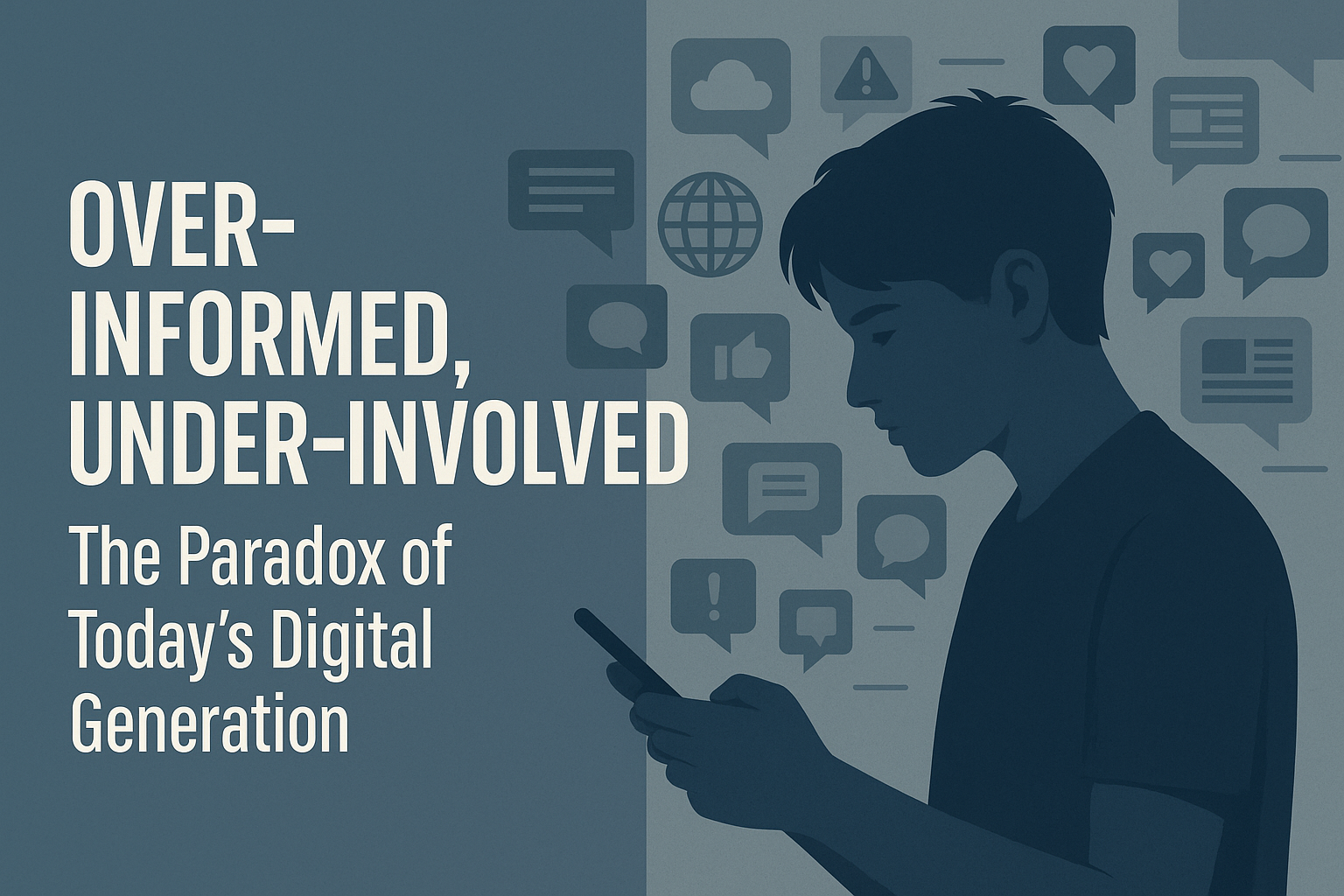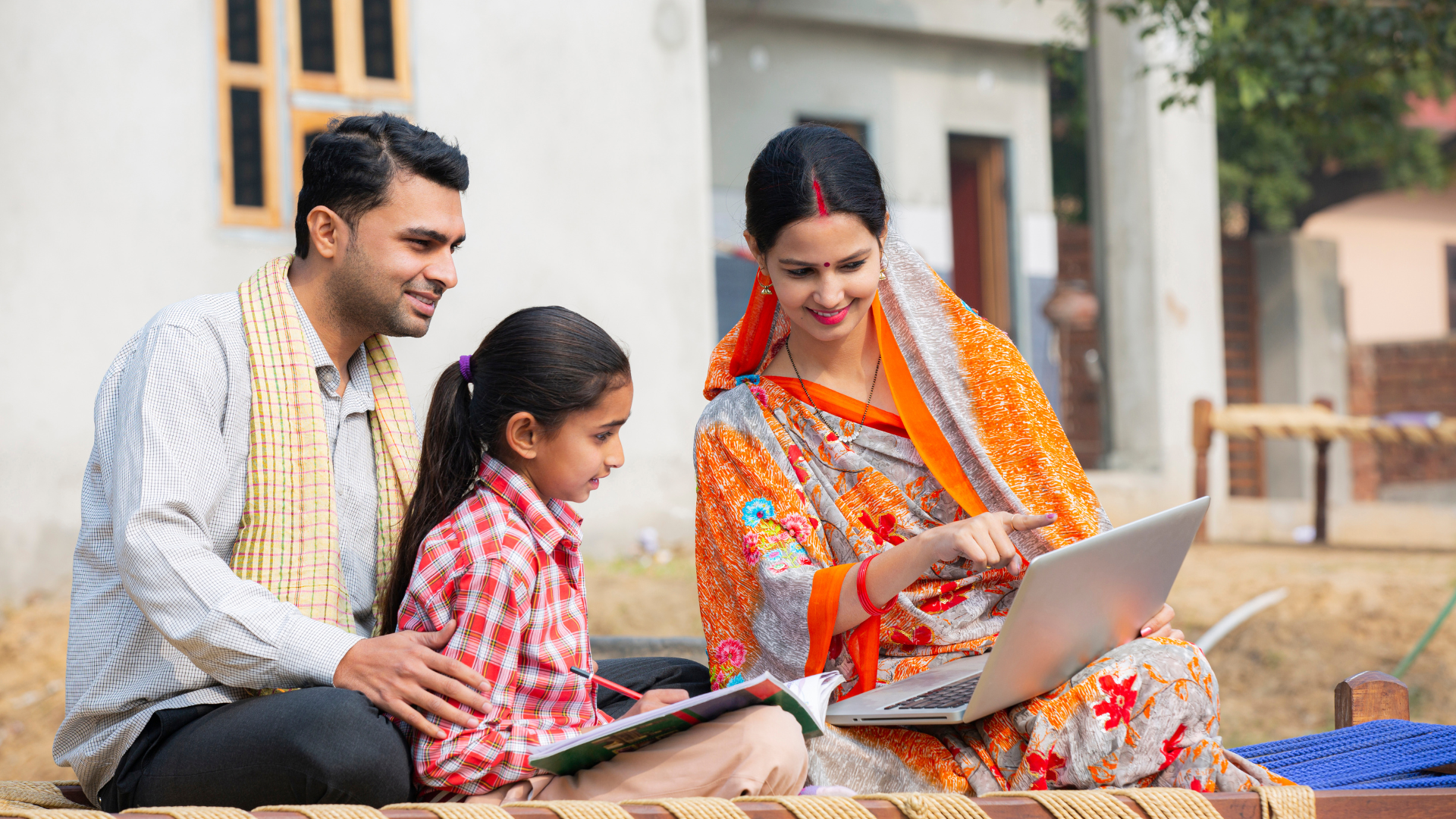About Us
A platform created to highlight youth voices, share meaningful perspectives, and spark change through honest stories—one thought, one voice, one impact at a time.
globalvoiceforeducation@gmail.com
![]() Simran ChauhanTECHNOLOGY & INNOVATION9 months ago1K Views
Simran ChauhanTECHNOLOGY & INNOVATION9 months ago1K Views

It is often said that our future lies in the hands of our youth. Why, then, are these very adolescents paradoxically becoming desensitized to the world’s most critical issues? This article explores how today’s youth are growing increasingly numb to global crises due to constant exposure to media.
The ubiquitous presence of media has overwhelmed young individuals with a constant stream of violent content, portraying the suering of others around the globe. Studies have shown that repeated exposure to such content often leads to emotional desensitization, where individuals exhibit blunt and diminished emotional responses to real-life violence. This phenomenon raises concerns about the long-term implications for empathy and social behavior, especially as these individuals grow into decision-makers who could shape the future.
Overexposure to news about violence, war, and humanitarian crises can lead to feelings of powerlessness and a reduced capacity to respond to these issues. This is almost inevitable when every other post on one’s ‘For You Page’ discusses the same tragedies, whether it be local gun violence or large-scale bombings. We live in an age where “doom scrolling” has become second nature. Individuals report feeling trapped in cycles of consuming distressing news, often without any clear path to action. According to a 2023 study, nearly 79% of teenagers reported feeling anxious and exhausted by the news they encounter online. This sustained exposure frequently results in emotional burnout rather than inspiring action, leaving young people feeling too drained to engage with the issues that demand their attention.
While today’s youth are more informed about global issues than previous generations, the paradox lies in their emotional response—or lack thereof. Many acknowledge that problems like climate change and geopolitical conicts are urgent, yet they feel detached from the reality of these crises. In fact, the World Economic Forum reports that fewer than 20% of Gen Z believe they have the power to make a signicant dierence in solving global issues. This sense of powerlessness fuels a cycle of passive consumption rather than active engagement. Instead of delving deeper into an issue, many resort to liking and sharing trending headlines before continuing to scroll. While social media has undeniably facilitated rapid information-sharing, it has also fostered performative activism, where engagement becomes more about appearing informed than taking tangible action—an increasingly evident trend among today’s youth.
Addressing this desensitization requires conscious eorts from educators, parents, and social media platforms alike. Fostering in-person dialogue can help individuals process complex issues on a deeper level. Setting healthy boundaries with media consumption and encouraging youth to participate in local volunteer work can transform passive awareness into meaningful change.
As we look to the future, it is imperative that today’s youth are not just aware of the world’s problems but
empowered to solve them.
Written By;

A platform created to highlight youth voices, share meaningful perspectives, and spark change through honest stories—one thought, one voice, one impact at a time.
globalvoiceforeducation@gmail.com



Pingback: Youth Empowerment: Build Leadership & Resilience in Youth